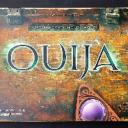Yahoo Answers is shutting down on May 4th, 2021 (Eastern Time) and the Yahoo Answers website is now in read-only mode. There will be no changes to other Yahoo properties or services, or your Yahoo account. You can find more information about the Yahoo Answers shutdown and how to download your data on this help page.
Can you help me understand Ockham's Razor?
I have heard the razor described with a few phrases including:
- Keep it simple.
- The simplest explanation is more likely to be correct.
- Choose the simplest of two equally likely solutions to a problem.
This link seems to describe the razor as a method for choosing between competing theories.
http://phyun5.ucr.edu/~wudka/Physics7/Notes_www/no...
An absurd example is presented to help illustrate that hypotheses that cannot be falsified should be dismissed in favor of those that are based on physical evidence. I know that this is a principle of science, but I'm not sure what it has to do with the razor.
Also, it seems to discuss the principle that all evidence must be observable in the physical form (positivism) or considered irrelevant when choosing a hypothesis. Is this truly what Ockham was implying?
I have also read that the razor refers to a process of selecting hypotheses that should be investigated rather than dismissing hypotheses "out of hand" due to increased complexity.
There seem to be conflicting information presented (what a surprise!). I'm interested in reading thoughtful explanations of your interpretation of the term "Ockham's Razor". (Please refrain from providing extensive references and links without any content to your answer. Thanks!)
8 Answers
- psiexplorationLv 71 decade agoFavorite Answer
The link below is from Wikipedia that I believe has a straight forward explanation. While there are many interpretations I (and a multitude of scientist) take this to mean that the simplest hypothesis should be chosen for experiment first.
It does not mean as is commonly assumed that the simplest explanation is the most likely to be correct.
However, the simplest hypothesis is certainly likely to be the easiest to falsify.
If the simplest explanation was true then quantum physics and string theory would be incorrect and newtonian physics (now falsified) would be the answer.
To summarize my interpretation is that it means that the simplest hypothesis should be chosen for testing first before moving on to more complex hypothesis for testing.
Psiexploration
Source(s): http://en.wikipedia.org/wiki/Occam's_Razor "The Elegant Universe" by Brian Greene http://library.thinkquest.org/3487/qp.html - Dr. NGLv 71 decade ago
For once, I almost agree with the poster above. However, The simplest explanation is in fact, usually correct. At least in the realm of the paranormal.
Examples I've seen here on Y/A. A can of soda sliding untouched on a flat surface. Is it a ghost, someone will ask. Occam's razor implies it's gravity and condensation. The simplest and most likely to be correct.
A photographic anomaly such as an orb. Same thing, probably dust or moisture or a lighting problem. A spirit/demon seen while going to sleep or waking up. I'm pretty sure at least most of the time it's the simple explanation, a dream. My point is, for our purposes here (the paranormal) Occam's razor applies as not only the first test but the most probable answer. If for no other reason, the rarity of true paranormal phenomena. If, in fact there is such a thing.
- JohnLv 71 decade ago
I like to go back to what William of Ockham is thought to have said (it actually doesn't appear in his writings word for word), which is "Don't multiply entities beyond necessity". What is an entity? To Ockham, it could be a principle of logic, physics or an actual being. Although you won't find this exact phrase in his documented writings, the sentiment is certainly his. He was a strong proponent of the principle of ontological parsimony, and he did write "For nothing ought to be posited without a reason given, unless it is self-evident or known by experience or proved by the authority of Sacred Scripture.” (I always thought it was a bit ironic that Ockham's principle of parsimony as described by Ockham himself applied to Biblical exegesis as much as scientific thought!).
So when you ask if Ockham demanded that all evidence must be physically observable, I think that his nominalist approach would ask for this as a general rule but the above quote lists 3 source of positive knowledge, one of which is Scripture. So he wasn't a positivist in the sense that you are asking. But Ockham also pointed out that the existence of God couldn't be deduced by reason alone (faith was needed), so he recognized the metaphysical dividing line for positing Scripture as a source of knowledge. Hence, one could conclude that the use of reason was indeed based on the physical evidence according to Ockham.
So that's the background. Ockham's Razor has evolved a bit from Ockham's writings (even the spelling has been changed to Occam), and the aspects of his nominalist ontology that applies to the scientific method has been adopted into the modern day concept of Occam's Razor. Given the history, it's not surprising that there are slightly different understandings of what Occam's Razor really means.
I like Isaac Newton's version of it, ""We are to admit no more causes of natural things than such as are both true and sufficient to explain their appearances." So in this quote it's more apparent that Occam's razor also shaves away metaphysical concepts for which there is no evidence or which aren't falsfiable (which is relevant to your question about the example in your link). Occam's Razor also suggests that the most scientifically fruitful hypotheses are those that aren't unnecessarily complex, which is a guideline to the investigator that it's probably most efficient to investigate the simpler hypotheses first. The more "entities" you have to invoke to explain something, the more likely you'll be wrong about one (or all) of them, so in that sense the simpler hypotheses tend to be the more correct ones.
But I would hasten to add that a hypothesis shouldn't be pursued just because it is simpler, but it has to fit the data as well. For example, in quantum physics or relativity we have some very complex explanations, yet these are the simplest explanations we have that fit the data. Newtonian physics, although much simpler, does not fit the data hence it is not a workable theory for quantum phenomena.
- Anonymous5 years ago
If I'm know-how you adequately, I agree that theology isn't regularly logical, neither is the easiest rationalization regularly used. Take Christ loss of life for everybody, for illustration. OK, if he died to forgive all sins, and very nearly wrote a clean investigate that everybody demands to coins, then what can we do with folks who do not coins it? The cash continues to be theirs, it simply wasn't picked up. If Jesus takes the cash again in dying, then he fairly did not die for them. If the cash is certainly nonetheless theirs, then what's the Lord doing sending them to Hell? The less complicated rationalization: Jesus didn't die for all. He died for the Elect. Of direction the atheist rationalization of Jesus no longer loss of life for someone is even less complicated at the floor, however begs ever deeper questions of the life of God himself and the that means of existence. Or is that what you are getting at?
- Anonymous1 decade ago
If a reported phenomena can be explained either by mundane causes, or by something that requires new laws of physics to explain it, occam's razor requires you to choose the known phenomena.
eg: aliens visiting and paralyzing you at night in bed requires an explanation orders of magnitude more complex than sleep paralysis, which is plausible, understood and evidenced.
So then its a probability thing. That doesn't mean you need to throw out your alternative hypothesis, but if you intend to pursue the alternate you need to find compelling evidence against the simpler explanation first.
- 1 decade ago
ok here are two other ways to explain it.
1 if you eliminate everything that is impossible, everything that remains regardless of how improbable, is truth.
2 on a level football field, the strongest fastest most skilled team will win.
- 1 decade ago
Well, I will try something simple here...
"All things considered, the most likely solution is probably the right one."
Past that, you pretty much have it nailed in your first paragraph.
- 1 decade ago
Ockham's Razor is non issue for me, I find it represents a reductionist paradigm that is now long dead.




